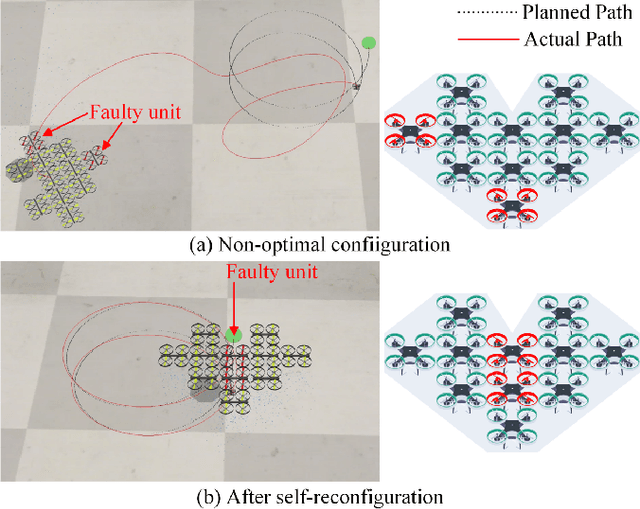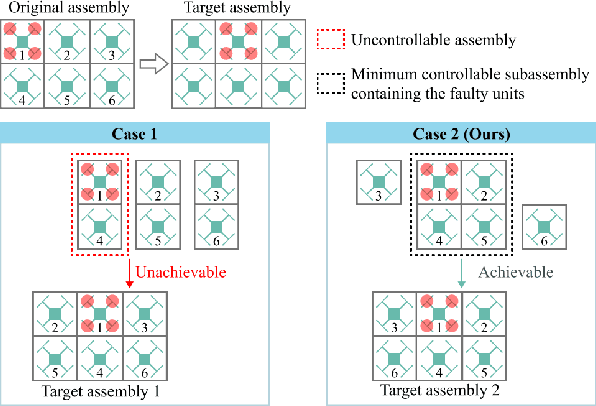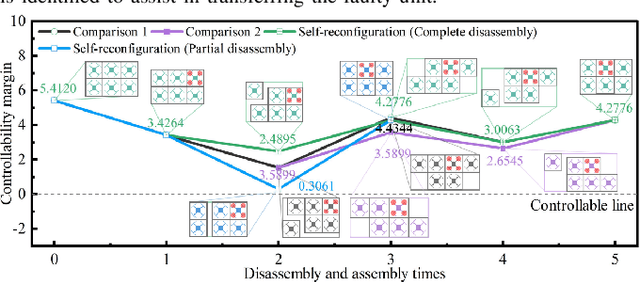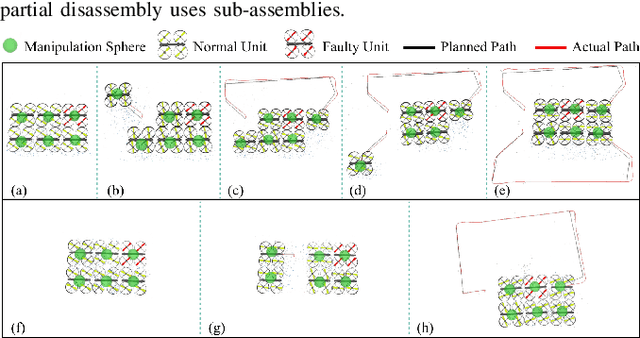Zhiqian Cai
Robust Fault-Tolerant Control and Agile Trajectory Planning for Modular Aerial Robotic Systems
Mar 12, 2025Abstract:Modular Aerial Robotic Systems (MARS) consist of multiple drone units that can self-reconfigure to adapt to various mission requirements and fault conditions. However, existing fault-tolerant control methods exhibit significant oscillations during docking and separation, impacting system stability. To address this issue, we propose a novel fault-tolerant control reallocation method that adapts to arbitrary number of modular robots and their assembly formations. The algorithm redistributes the expected collective force and torque required for MARS to individual unit according to their moment arm relative to the center of MARS mass. Furthermore, We propose an agile trajectory planning method for MARS of arbitrary configurations, which is collision-avoiding and dynamically feasible. Our work represents the first comprehensive approach to enable fault-tolerant and collision avoidance flight for MARS. We validate our method through extensive simulations, demonstrating improved fault tolerance, enhanced trajectory tracking accuracy, and greater robustness in cluttered environments. The videos and source code of this work are available at https://github.com/RuiHuangNUS/MARS-FTCC/
Robust Self-Reconfiguration for Fault-Tolerant Control of Modular Aerial Robot Systems
Mar 12, 2025



Abstract:Modular Aerial Robotic Systems (MARS) consist of multiple drone units assembled into a single, integrated rigid flying platform. With inherent redundancy, MARS can self-reconfigure into different configurations to mitigate rotor or unit failures and maintain stable flight. However, existing works on MARS self-reconfiguration often overlook the practical controllability of intermediate structures formed during the reassembly process, which limits their applicability. In this paper, we address this gap by considering the control-constrained dynamic model of MARS and proposing a robust and efficient self-reconstruction algorithm that maximizes the controllability margin at each intermediate stage. Specifically, we develop algorithms to compute optimal, controllable disassembly and assembly sequences, enabling robust self-reconfiguration. Finally, we validate our method in several challenging fault-tolerant self-reconfiguration scenarios, demonstrating significant improvements in both controllability and trajectory tracking while reducing the number of assembly steps. The videos and source code of this work are available at https://github.com/RuiHuangNUS/MARS-Reconfig/
 Add to Chrome
Add to Chrome Add to Firefox
Add to Firefox Add to Edge
Add to Edge